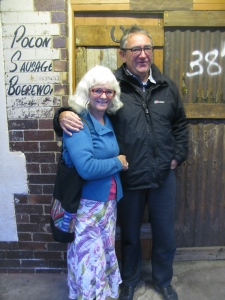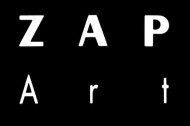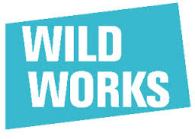Sunday – Soweto! Ntokoze Dube our guide took us on an informal walk around Kliptown, the area our Hotel is based in. The Soweto Hotel has fantastic links with the local community; it is based in the famous Freedom Square where Mandela and 3000 delegates wrote the freedom charter in 1955. Across the rail tracks is a very poor shantytown, with no electricity or mains water and sewage system. Soweto is huge and many faceted, smart new houses and large shopping malls contrast with the tin shacks and street stalls near our hotel. In this neighbourhood we met ‘Brother Bob’ (Nameng) and his Sky (Soweto Kliptown Youth) project. Bob was born in Kliptown, but was fostered after becoming an orphan, he told us how he had escaped this harsh foster ‘home’ when ‘Mama Eva’ came to find Bob and his brother and bring them to her home. He was relieved to be back in Kliptown, a racially and culturally diverse area and happy to be in a loving home with Eva. He developed a passion for helping the children in this community, and as a result in 1985 he set up a youth club and after-school creative programme KCYC. Wanting to expand his work to include all ages, he set up the Sky project (1987), an international project including a boarding school, free meals, recording studio, holiday clubs with creative and sporting activities, and a learning centre open to anyone in his community; one of Bob’s strong beliefs being ‘a community that reads is an intelligent community’. Sky has an exchange programme with students from the USA, links with Warwick University and the NBA Basketball without Borders. Brother Bob is at the heart of this community and Sky is a haven for the local youth, providing a home, education and the chance to go out into the wider world with their music tours.
We would be proud to engage with the work of SKY, and Bob would like to make more international links and be part of Home.
On Monday a very different visit took us to The Soweto Theatre, a beautiful newly built theatre – the first in Soweto. We met Carl Johnson, the General Manager and Warona Khosi the Artistic Programme Director and Robert Motseko who works manages Marketing and Community Engagement. One of Carl’s main aims is to reach more of the local community as his audiences and participants. Warona was very interested in Bill’s extensive experience in community engagement in his previous WildWorks’ projects, in the context of the forthcoming anniversary of June 1976, the death of Hector Pieterson during a student uprising. Warona would like to develop a way for the Soweto Theatre to go into the community and devise with them, hoping to create a piece that used the setting of Soweto in a similar way to WildWorks’ embedded use of site and landscape in their productions. The forthcoming project would need to commemorate the historical event, but also, importantly, look forward to a positive future for Soweto. Carl explained some of the political complexities of the 1976 Uprising, his background as a British born man, brought up in a liberal East Cape South African home, gave him a fascinating overview of the situation.
We hope to work closely with The Soweto Theatre; the meeting was full of interest and positivity.
On Tuesday we met with Phaphama Initiatives, an NGO that covers many areas: it promotes tourism, runs workshops on conflict resolution, gender reconciliation (with USA ‘help increase peace’ HIP), support work in schools, correction institutes, and in the community, they teach skills of mentoring and finding alternative employment, they run a youth entrepreneurial school (YES) for over 16year olds, a project bringing together people with relevant skills and students requiring mentoring. Africa Mzaku, the Arts and Culture Director, outlined this stream of their work. He described it as a Post-apartheid community arts movement to encourage social mobility. Outdoor work is one of its main features, they have worked with French Theatre Company L’Epidores and a Belgian Arts Agency Frans Brood, they have curated an artistic tour and staged theatre performances, dance and music in their outside space. Dutch artists have come over to swap skills with South African teachers. We discussed what area might be best for our project in Soweto. Africa suggested the Bramfischer ville community would be a suitably diverse community, then, on reflection, answered:
‘I think your project can work anywhere.’
Later that day we met Zanele Mashumi an artist. She was born in Soweto and studied art in Johannesburg. Zanele runs her own company hosting art exhibitions in cafes, pop up galleries, and abandoned buildings. She was well informed and very interested in Home. Bill was impressed with her photographic project where USA students gave cameras to Kliptown residents, including children, and asked them to take their own photographs on a variety of themes. The resulting photos were very poignant, we felt we had made a fantastic link for our project. Zanele is also interested in using installations to reflect the lives of the local community:
‘People’s voices really matter.’
On Wednesday we met with Arts Township International, the meeting included Bangani Ngwenya the Director, Ro
lihlahla Mhlanga the Manager, and Mandla Tshabalala who sponsors Eyethu Cellardoor. ATI run an International Lifestyle Centre, including Soweto’s first wine cellar, where a photographic exhibition is being hosted from the 13th November. They turn homes into galleries and use local people’s houses to display art works. They are about to launch a graffiti route, and plan to revamp a defunct cinema on their land into a performing arts development gallery. Their overall aim is to map out a cultural district in Soweto. They plan to liaise with favelas in Rio and already work in Cape Town’s KCD (Kayamandi Creative District). ATI have links with Soweto Theatre and have discussed with Warona the idea of ‘flash mobs’ to bring performance to township people who, generally, do not seek culture inside buildings. They informed us about the links they have with educational institutions, and creative companies such as dance studios, film studios etc. We finished off with a tour of the new wine cellar and caught a preview of the photographic exhibition by Jerry Obakeng Gaegane Market Photo Workshop, beautiful photos documenting the lives of illegal gold prospectors. Bill Mitchell presented the story of WildWorks and Zap outlined how they we might work together, their response was:
‘You came to the right people.’
A few more contacts friends a were made during the trip, Sakhile Skhosana from Publication Design House who works with video and design and supports Soweto musicians by providing them with portfolios, and Victor a TV producer and director. Lastly, but not least, the one off collector, storyteller, and man of many names, Om Bolo ‘Father of Kliptown’. We felt immediately at home in his extended house of historical  kitchens and other artefacts, including a huge prison tape-recorder with reels of tape recorded during the apartheid era. Om Bola cooked us a traditional Soweton meal, using bowls, plates and a calabash from three of his South African kitchens. The meal was amazing and Om regaled us with fascinating stories about his life in Kliptown, poverty, memories of Mandela and the events during the student uprising. Om was photographer, for five years, on the innovative, multi-racial ‘Drum’ magazine. He has worked as a cultural researcher and plans to document ‘The Unsung Heroes’ of Soweto. On politics, culture, and Kliptown family life, Om was an eloquent speaker. A skill he says he learnt outside by the light of a brazier and In front of ‘the teardrops of the candlelight’.
kitchens and other artefacts, including a huge prison tape-recorder with reels of tape recorded during the apartheid era. Om Bola cooked us a traditional Soweton meal, using bowls, plates and a calabash from three of his South African kitchens. The meal was amazing and Om regaled us with fascinating stories about his life in Kliptown, poverty, memories of Mandela and the events during the student uprising. Om was photographer, for five years, on the innovative, multi-racial ‘Drum’ magazine. He has worked as a cultural researcher and plans to document ‘The Unsung Heroes’ of Soweto. On politics, culture, and Kliptown family life, Om was an eloquent speaker. A skill he says he learnt outside by the light of a brazier and In front of ‘the teardrops of the candlelight’.
We were met with a very warm welcome in Soweto, and look forward to returning.
Photo: Outside the home of Om Bolo
Home – Conceived by Dave Reeves with Bill Mitchell and produced by Zap Art in collaboration with artistic lead WildWorks. Supported using public funding from the National Lottery through Arts Council England.


